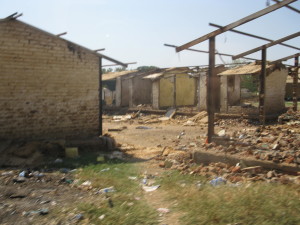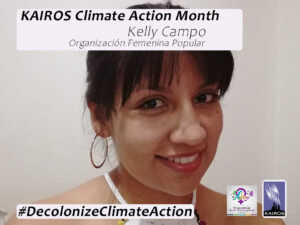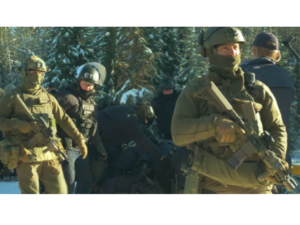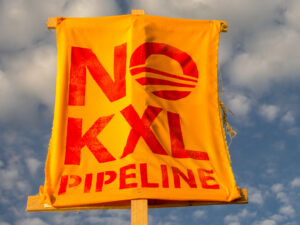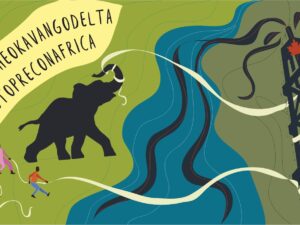SpOILer?
There is a lot of talk of oil in Juba.
The referendum on splitting up the country which begins on Sunday will begin to clarify positions on who benefits from the considerable oil revenues of Sudan. It won’t be the end of discussions, however, as both sides have a “dog in this fight” (pardon the violence of the idiom, but we are dealing with two warring parties.) The oil lies mostly within the boundaries of Southern Sudan, while the pipeline to export the oil runs through the North to Port Sudan. At the moment, both parties benefit enormously from oil revenues. By some accounts, the Government of Southern Sudan is 98% dependent on them.
Southern Sudanese seem all too aware that oil can be either a blessing or a curse. Some here say that the entire 21-year civil war was fought over oil. But, at the same time, in a country with few other known resources, what options are there for Southern Sudan than to develop the fields?
There was talk a few years ago about building a pipeline through Kenya. Talk seems to have quieted in preparation for the referendum, but with new discussions about Chinese development of a massive port at Lamu, Kenya, there appears to be renewed interest in the idea of a second pipeline. Of course, any pipeline would take years to build.
Either way – with a new pipeline or not – the two Sudans will need one another. Some of the oil fields straddle a future border.
What about climate change? While we in the developed North debate our over-dependence on oil and its enormous impact on the environment, the people of Southern Sudan do not have this same pre-occupation, it seems. Bring up the environmental impact of oil production and its use with people here and you get a blank stare in return. Oil will be necessary for development, is a standard response. The irony that continued oil development in one part of Sudan is causing problems for people in another part of the country (namely, Darfur) seems lost on many. The increasing pressure on land and water by the advancing Sahara is viewed by some as worsening tensions in the western and northern regions of Sudan.
Canada, of course, has a “dog in this fight”, as well. Not only did a Canadian company help build the infrastructure that continues to put wealth in the coffers of the Sudanese government and its military, but Canada refuses to block investment in Tar Sands oil from companies implicated in the conflict in Darfur. Canada shouldn’t deal with Chinese state oil firms, but we do. We are addicted to their wealth just as they are becoming increasingly addicted to our oil.
There should be no surprise, then, that oil will continue to be a hot topic long after the referendum is decided.
——————————————-
John Lewis, KAIROS International Human Rights Coordinator, accredited by the South Sudan Referendum Commission, is currently in South Sudan on behalf of the Canadian churches monitoring the self-determination referendum called for in the 2005 Comprehensive Peace Agreement ending 20 years of North-South civil war.
